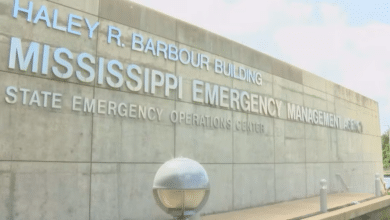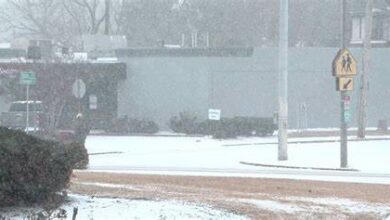Worst drought in decades puts Brazil energy, agri interests on alert

By Carlos Meneses
Sao Paulo, Jun 24 (EFE).- Still far from overcoming the coronavirus health crisis, Brazil is facing the worst drought in decades, a phenomenon that is becoming ever more frequent under the influence of deforestation in the Amazon, among other factors, and which is endangering the country’s electrical grid, which is based mostly on hydroelectricity.
The rainfall deficit is “critical” and will be aggravated in the coming months in Brazil during the Southern Hemisphere winter, the period of the year with the least rainfall, as government entities and sector experts consulted by EFE are warning.
The drought is concentrated in the southeastern and west-central regions of the country, where 70 percent of the hydroelectric power consumed in Brazil is generated.
The high temperatures and the scarcity of rainfall – the lowest precipitation figures in 90 years, according to official measurements – have aroused old fears about the possibility of electric power rationing, something that has been ruled out by the national government.
The combination of those two phenomena has drastically reduced the levels of the reservoirs that supply the hydroelectric dams with water in the affected regions.
At the end of May, the reservoirs were at about 30 percent of their capacity, the lowest level since 2001 for this time of year and, according to the most optimistic forecasts by the National Electrical System Operator (ONS), they will decline to just 10 percent of capacity by November.
But the drought is also a problem for agribusiness, one of the engines of the Brazilian economy and which is trying to recover after plummeting due to the Covid-19 pandemic.
The Jair Bolsonaro government has reduced its forecasts for the 2021 harvest, especially in corn, a situation that could have an impact on international prices, since Brazil is one of the biggest producers and exporters of that grain.
“It’s a scenario that has no precedents for decades,” Marcelo Schneider, the regional coordinator of the National Weather Institute, told EFE.
The situation is especially worrying in the Parana River basin, which in Brazil includes the states of Minas Gerais, Goias, Mato Grosso do Sul, Sao Paulo and Parana, all of which are on “emergency water alert,” something that has not been declared in the 111 years that the National Weather Institute has been in operation.
Why is the rainfall down so much? Several factors are in play, including the fact that from September 2020 until well into 2021 the La Niña weather phenomenon has been resulting in far less rainfall in southern Brazil, Schneider said.
Another factor at work is deforestation in the Amazon region, which has dramatically increased since Bolsonaro came into office.
The destruction of the rainforest is having an impact on the so-called “flying rivers,” masses of air coming from the Atlantic Ocean that enter the Amazon region, causing rain and recharging themselves from the humidity put out by the trees in the tropical bioma.
Those air currents, upon coming into contact with the Andes mountain range, move in a huge curve and irrigate the southern portion of South America.
However, “there has been a reduction in moisture due to deforestation. The winds blow, but they bring less rain,” Pedro Luiz Cortes, a professor with the University of Sao Paulo’s Energy and Environment Institute, told EFE.
Global climate change is also at the root of the problem. “Over this latest decade, these dry periods have been becoming a little more frequent, also as a result of the increase in temperature,” Schneider said.
To avoid electricity supply problems, the regulatory entities have increased prices and brought thermoelectric centers online, which are more expensive to operate and pollute more, since they generate energy by burning coal and diesel fuel.
Energy is also being imported from Argentina and, to a lesser degree, from Uruguay, among other measures being taken.
For the moment, the government is ruling out electricity rationing. On Tuesday, Chamber of Deputies President Arthur Lira said after a meeting with Mines and Energy Minister Bento Albuquerque, that there could be “an educational period” during which “some rationing” might be undertaken.





